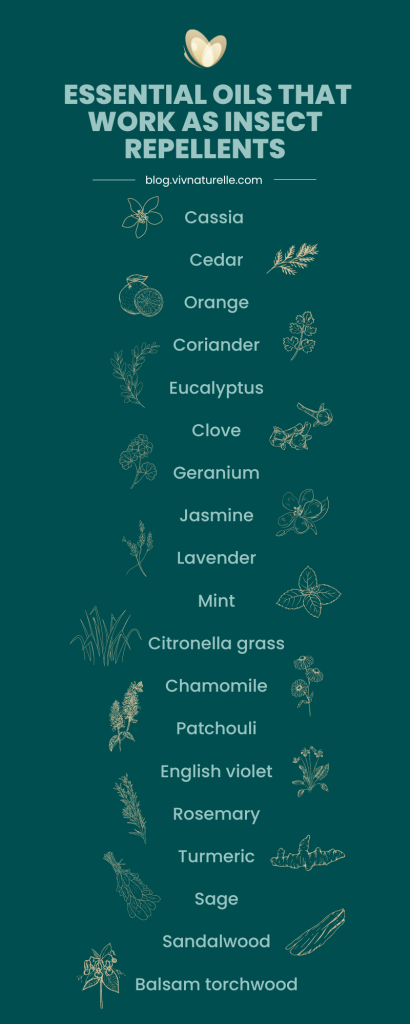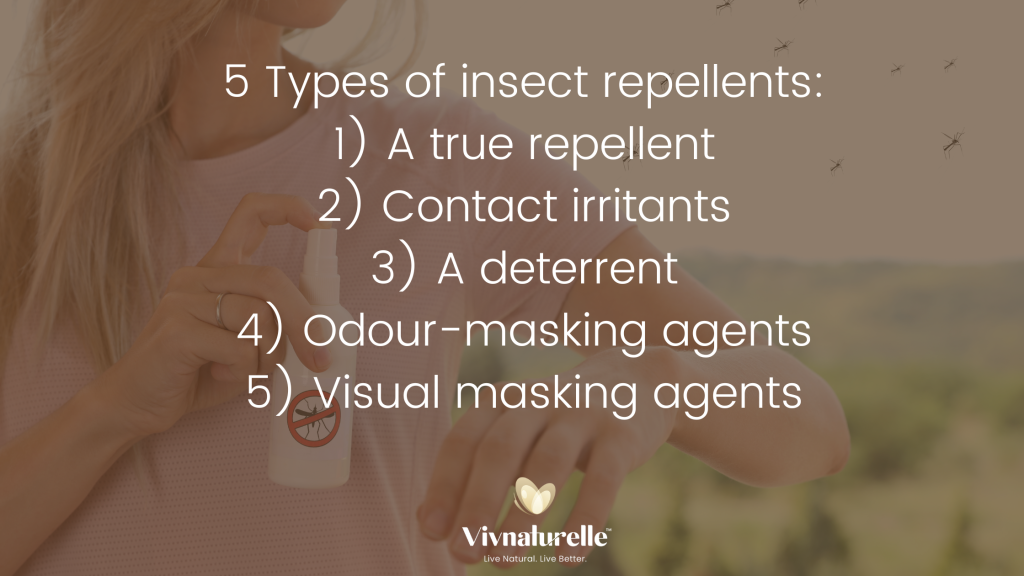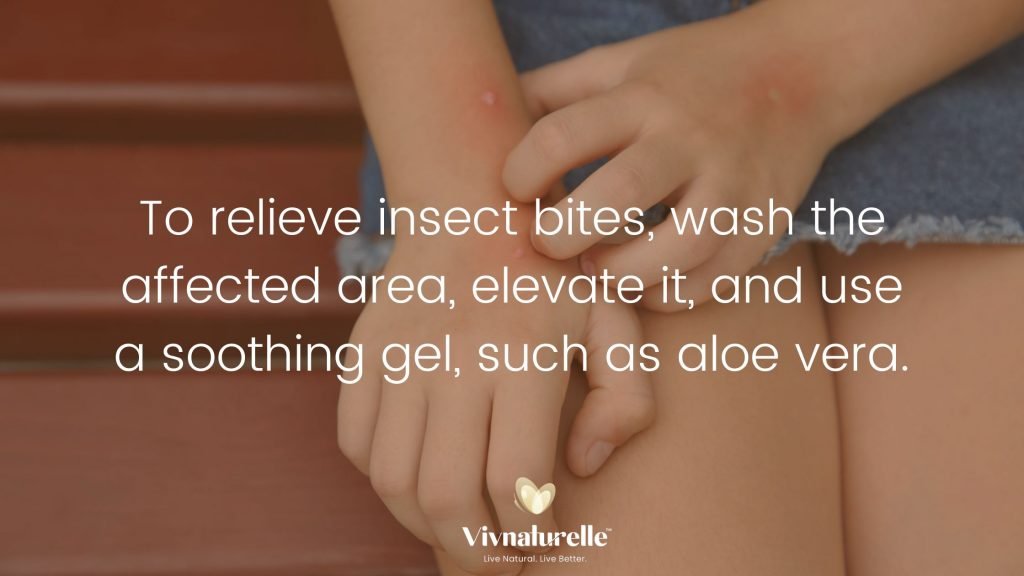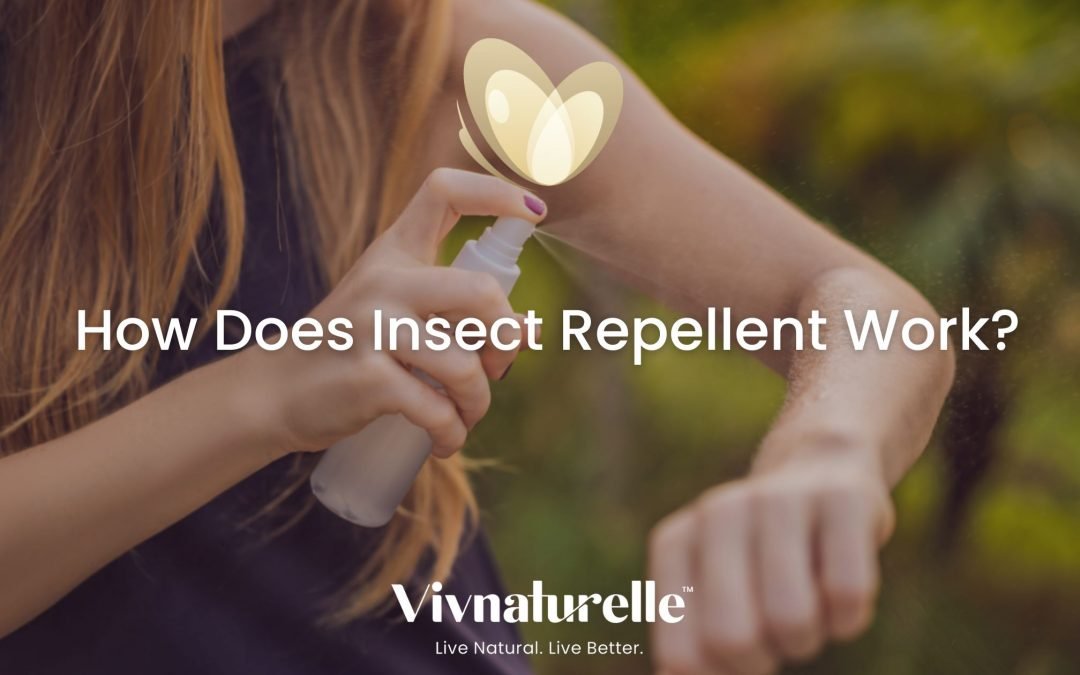Do you ever wonder how insect repellent works? You may be surprised to learn that it’s not a recent concept. In fact, insect repellents have been in use for about two millennia in ancient China, Egypt and India. Of course, back in those days they only used natural ingredients such as essential oils to repel mosquitos, midges and other insects.
The use of insect repellents is to repulse mosquitoes, ticks, flies and other insects that bite. They usually stop insects from biting and spreading diseases, but they do not kill insects. Mosquitoes can pass on diseases such as Zika, Malaria, and West Nile virus. Likewise, ticks can pass on to humans Lyme disease, Rocky Mountain Spotted Fever and many other diseases.
As we’re becoming more aware of what we put on our bodies, it might be a good idea to look back at what natural products civilizations used back in those days. Although we can’t time travel, there is ample research indicating which essential oils help repel insects. Let’s have a closer look to answer the question – how does insect repellent work?
Essential Oils That Work as Insect Repellents
There are many essential oils that can work as insect repellents, however, some of them are only effective for a matter of minutes. Therefore, we’ll only list those that are effective for 4-8 hours. Here are the most effective essential oils to repel insects:
- Cassia
- Cedar
- Orange
- Coriander
- Eucalyptus
- Clove
- Geranium
- Jasmine
- Lavender
- Mint
- Citronella grass
- Chamomile
- Patchouli
- English violet
- Rosemary
- Turmeric
- Sage
- Sandalwood
- Balsam torchwood
Citronella grass in particular can be found in most insect repellents these days because of its effectiveness. While you shouldn’t just apply pure essential oils straight on your skin, next time you’re looking for an insect repellent, you can be confident that it will work if it has some of the essential oils we’ve mentioned.

How To Make Insect Repellent With Essential Oils At Home
If you want to make an insect repellent at home, here is one easy recipe to try!
Ingredients:
- 2 tbsp. of carrier oil of your preference (almond, jojoba, avocado or argan oil)
- 10-20 drops of lavender or Citronella grass essential oil
- small bottle or jar
Instructions:
Firstly add the carrier oil to your bottle and afterwards add the essential oil. Then shake the mix well and it is ready to rub on your body! Be careful not to touch your eyes or your mouth with the repellent, so as not to have any allergic reaction. You can spray some around the room.
How Do Insect Repellents Work?
To further understand insect repellents, we need to understand how they work. According to researchers, mosquitoes and ticks are captivated by the scent of the skin and by the carbon dioxide that humans emit. They also use heat, activity and optical hints to discover any host. Repellents influence an insect’s senses such as smell and taste, to stop them from detecting a human or animal host.
Different Types Of Insect Repellents
According to an article published in Acta Tropica, there are 5 categories of repellents based on what they consist of and how they work.
- A true repellent – this type of repellent affects the insect without being in touch with the surface where it was applied. That is caused by the odour.
- Contact irritants – repellents in this category cause the insects to immediately leave the surface after touching it.
- A deterrent – prohibits mosquitos specifically from drawing blood.
- Odour-masking agents – these confuse insects by masking your natural scent. That way they can’t locate you or don’t even sense you as a potential target.
- Visual masking agents – these affect the vision of the insect, preventing them from finding you.

How To Relieve Insect Bites
If you’ve already been bitten and want some relief from all the itching, there are various methods you can use. According to the NHS, you should start by washing the affected area. It is advised to use a cold compress and to elevate the affected body part. In addition, avoid scratching as that could cause an infection and further skin irritation. Another great tip is to get a cream or gel from a pharmacy or to get some antihistamines that will help with the allergic reaction. Another ingredient that works wonders to relieve your skin is aloe vera. If you have any gels or creams with aloe vera, rub some of that on the affected area and let it soothe the itching.

Final Thoughts
There are various insect repellents that work by deterring insects from biting you. According to a study published in Bioresource Technology, natural repellents are a safer option for you and the environment. Next time you go to purchase an insect repellent, look for one that is full of essential oils, rather than toxic chemicals and alcohols. If you’ve already been bitten and are looking for relief, remember to clean the area first and then use one of the methods we recommended to soothe it. We hope this has been helpful and answered the question of how insect repellent works?
You can read more about it from National Pesticide Information Centre, NPR and this article by OFF.


